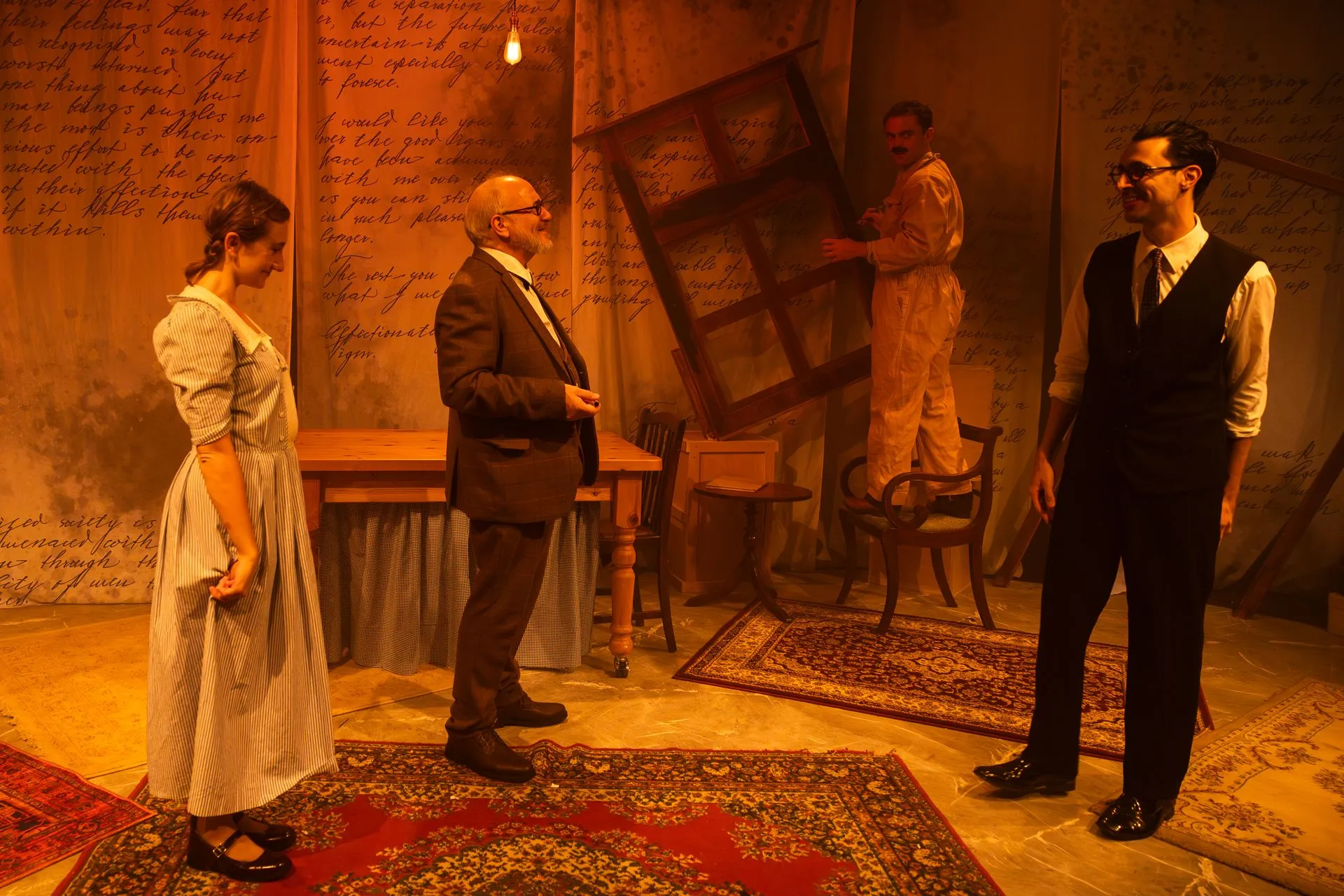This is a dark comedy by Laurence Marks and Maurice Gran about a young Adolf Hitler who visits a new kind of doctor in Vienna, Sigmund Freud, and keeps reappearing in Sigmund Freud’s life as Europe tilts toward disaster.
The opening is brutal and direct. Adolf’s father whips him with a belt for bedwetting while a terrified mother looks for help that her husband will not allow. A GP suggests a new clinic run by Dr Freud, and the play imagines what happens if Mrs Hitler defies her husband and takes the boy anyway.
From there the story moves in short encounters across years: a nervous consultation, a prickly lecture interruption, a wartime hospital bed, then a politician who learns to enjoy the sound of his own myth.
Sam Mac’s acting, as Adolf Hitler, lands the evening. He starts tight-shouldered and twitchy, voice pitched a notch too high, the comic edges almost cute until you see the anger underneath. In the World War I ward scene he lies rigid while Freud tries hypnosis to treat his blindness, and he mishears “serve your country” as a command from God. That misunderstanding becomes purpose, and Mac lets a small, hungry grin flicker as the words take root. Later, when he first steps on stage in full uniform, hair slicked and the previously comic handlebar moustache pared thin, the room’s temperature drops.

Jonathan Tafler’s Freud is no saint and no fool. He uses wry humour as a probe and keeps the famous cigar as both prop and provocation. A line lands with a dry thud: “I am aware the cigar is a phallic symbol. I wrote the book”. Tafler plays Freud with weary self-parody, and it relaxes the room just enough before the next turn of the screw. He also shows the cost of staying rational when hatred is in plain sight, especially in a late exchange about why people surrender their will to the state.
Ruby Ablett’s Anna, Freud’s daughter, frames the piece and quietly deepens it. She moves from bookish teenager to clear-eyed adult, her narration a diary that becomes a warning. A home scene, cut by a house search, ends with Anna dragged away by an SS officer; Ablett underplays, which makes it worse.
Marks and Gran aim for an argument about therapy’s limits and the seduction of certainty. When the writing sticks to that, it bites. A grim gag lands because it is tossed away: Hitler tells Freud “your books burn well, but then they are very dry”. A casual slur in a Wagner anecdote is designed to jolt, and it does, highlighting how culture can be twisted into a purity test. A few meetings feel engineered, though. Freud touring hospitals to investigate misuse of shock therapy and bumping into Hitler in a ward bed is a stretch, even with the hypnosis twist. A café debate in which Hitler shrugs that the answer to government control is “the charisma of the leader” states the theme a shade too neatly.

The evening connects cleanly to now. It shows how charisma plus grievance can look like common sense if you need it to. It lets you feel the pull of a simple story about who is to blame and why you should fall in line. It pokes at the modern faith that talking cures everything if you just find the right couch. It also asks what professionals owe the public when private wisdom meets public harm.
The play earns its bigger claims through detail: the nervous comic figure in lederhosen mutating into a cold presence in uniform; the book-burn line tossed like office banter; the final reminder that in 1939 Freud died nearby in Hampstead. In this small Highgate room, that lands with a thud you carry outside.
This show has a tight script, strong performances, smart ideas, some forced pivots, and two or three images you will not forget. If you want provocative new writing with bite, book. If you need tidy logic for every coincidence, adjust your expectations. If you bring a school-age historian, prepare them for difficult language and themes.


